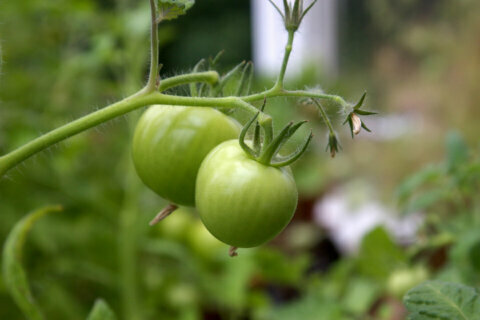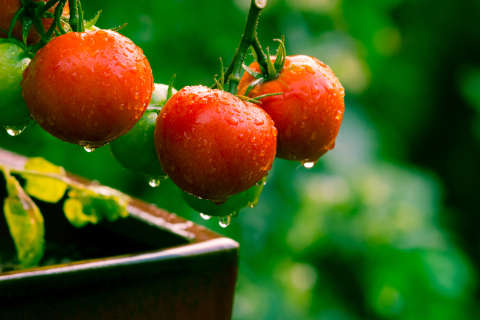This Just in: Maryland and Virginia beat Pennsylvania!
That’s one of the takeaways from an Associated Press story that ran last week, and it’s not about a sporting event — it’s regarding the health of the beloved Chesapeake Bay. Water clarity is the best it’s been in decades, says the biennial State of the Bay Report, compiled by the Chesapeake Bay Foundation, and the blue crab population has increased dramatically.
The report adds that Maryland and Virginia are both on track to achieve state and federal Bay-related goals this year, while Pennsylvania was found to be “significantly behind,” largely due to failure to reduce pollution from agricultural chemicals.
Could part of that failure be due to the fact that Pennsylvania has no laws limiting the use of lawn fertilizers, while Maryland and Virginia do?
Just asking …
My Christmas tree gave birth to bugs!
Linda and George, in Rockville, emailed me frantically on New Year’s Day to report that after two weeks in the house, the floor under their cut Christmas tree was covered with small black objects that turned out to be insects. “There must have been over a thousand of the nasty little bugs. How can we avoid this in the future?”
I explained that some female insects — possibly in the seed bug family — laid their eggs in the tree at the end of the summer and the eggs hatched prematurely after the tree was cut and taken into the warmth of the house. This is unusual, but not unique — I get an email like this every few years or so.
But I added that it is a highly unusual occurrence if the tree went through one of those big shaker machines that many tree sellers use to remove dirt, dead needles and such.
They replied that their tree had not been shaken, but that future trees will be all shook up.
Scarab beetles ate my garden!
Marilyn, in West Springfield, writes: “This past summer saw all of my garden plants chewed up. I was told that the cause was a scarab beetle, and that the beetles go underground in winter and cannot be managed now. What is the best way to correct the problem when the weather gets warmer and they emerge—or maybe before they emerge?”
“Scarab beetle” is the name of a large family of destructive insects that includes Japanese and June beetles, as well as rose chafers. Their damage is very distinctive, with the plants taking on a lacy appearance as the beetles feed.
Their favorite targets include roses, grape vines, roses raspberries and roses. Oh — and roses. The adult beetles die in mid- to late summer after laying eggs in the soil. Those eggs hatch into grubs, and it’s the grubs that are deep down in your soil now — not adult beetles. They are, in fact, beyond attack right now.
But they will come out of dormancy in the spring, and as they slowly wake up and begin their final metamorphosis, they can be made the prey of beneficial nematodes. You order these microscopic predators online — the mail-order firm Gardens Alive! is one source — and they’ll arrive in the mail: literally millions of them packed inside a little sponge.
You drop the sponge into a watering can and water them into your pre-moistened lawn and garden in the early evening (NOT in the middle of a sunny day!) after the soil has warmed for the season — mid-April to early June should be ideal. The nematodes will seek out and destroy the grubs, but will not harm earthworms.
WARNING: Do not use chemical grub killers! Fireflies (or, as I have always called them, “lightning bugs”) are in the beetle family, also overwinter in a grub stage, and their biggest threat is the indiscriminate use of chemical insecticides.
Beat the beetles
Any grubs that escape the jaws of beneficial nematodes will emerge in late spring and early summer as rose-ravaging winged beetles. At that point, strategies vary, but gardening organically will help a great deal. Pests such as Japanese beetles and rose chafers are strongly attracted to plants that have been stressed into excessive growth by chemical fertilizers.
So job No. 1 is to take proper care of your plants: no mulch other than compost, no chemical fertilizers, no random spraying.
I’ll talk a lot more about Japanese beetle control as the weather warms up and those grubs begin to wake up.







